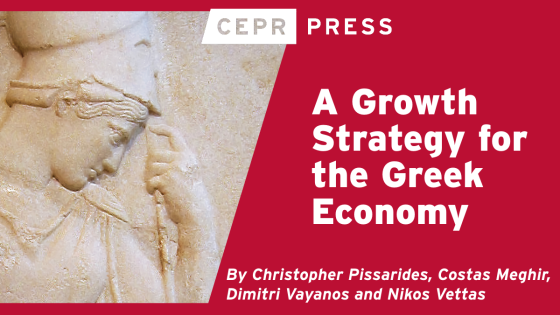For more than a decade, Italy has been ruled through a bipolar political system. Voters could choose between a left-wing coalition and a right-wing coalition. Those disappointed by the incumbent government could vote for the opposition. And the existence of a viable alternative has had a disciplining effect on politicians: not by chance, Silvio Berlusconi’s government served its entire electoral term.
This is in stark contrast to the Italian political tradition. Throughout the post-war era, until the early 1990’s, Italian governments survived less than a year on average. Voters were unable to choose between the incumbent and the opposition, because the same centrist parties were in office all the time. Government crises were merely an opportunity to reshuffle key cabinet positions or change the party faction of the prime minister.
However, there is now a high risk that Italian politicians will return to their old habits. This may seem strange, given the antagonism between Romano Prodi and Berlusconi during the electoral campaign. But that antagonism reflected the personalisation of politics achieved by Berlusconi, as well as an institutional feature that he abolished. One of the last acts of his government was to replace the majoritarian electoral system, introduced in 1993, with proportional rule. The new electoral system changes the politicians’ incentives, and could induce a return to shifting coalitions and unstable governments. This outcome would be accelerated if, as is likely, Berlusconi himself were to distance himself from politics in the coming electoral term.
Under the new electoral rules, seats are allotted to parties in proportion to votes, but a special provision induces parties to forge pre-electoral agreements: the pre-electoral coalition that wins the most votes receives a seat premium that ensures a comfortable majority in the Chamber of Deputies (the lower house). Unfortunately, the new law – hastily enacted at the last minute of the previous legislature – has a silly formulation that does not guarantee an equally safe majority in the Senate. As a result, Prodi has won a large margin in the lower house, but he has only a handful of extra votes in the Senate. Given Italy’s almost perfect bicameralism, this means that the new government will find it very difficult to function even under ideal circumstances.
But Italy’s circumstances are far from ideal. The new government will face formidable challenges. The budget deficit is again out of control, and well over the 3%-of-GDP Maastricht ceiling. The aging population is straining the public pension and healthcare systems beyond sustainability. The manufacturing sector, squeezed by stagnating productivity and competition from China and other low-cost producers, is no longer competitive. Many services remain inefficient, because they are either in the domain of an archaic public administration or enjoy monopoly rents created by regulatory barriers.
Inaction is simply not an option for the new government. And yet agreement on virtually everything of significance will be very difficult to reach. Prodi’s left-wing l’Unione coalition comprises a hodge-podge of parties spread all over the political spectrum, ranging from staunch communists to former liberals (with communists stronger than in the previous election). Under the new electoral system, all of these parties will be competing with each other for the same votes, and each one will seek to protect its own constituency or claim credit for whatever is accomplished. Given l’Unione’s razor-thin majority in the upper house, the most likely outcome is paralysis.
As if this was not enough, Prodi will face another problem. Just before stepping down, Berlusconi’s government also approved a constitutional reform that, among other things, provides a logical complement to the new electoral system. In particular, the new constitution strengthens the powers of the prime minister and enables him to call early elections in the event of a government crisis. This provision would be an important weapon in Prodi’s hands. But the left-wing parties that support him have already announced that they will block the constitutional reform, which they opposed for other reasons. Hence, Prodi will almost certainly be deprived of his best tool for imposing discipline on his unruly coalition.
What is likely to happen when a large and heterogeneous coalition with barely a parliamentary majority must govern in an increasingly dire economic situation? The answer is almost obvious: either the government will collapse, or it will seek to poach supporters from opposition parties. Which of these two outcomes will materialize also depends on what happens inside Berlusconi’s camp, and that is less easy to predict.
But, either way, the bipolar political system to which Italians were getting accustomed is unlikely to survive unscathed. The left-right divide will become easier for opportunistic politicians to cross, and perhaps a new centrist party will emerge. As a result, Italy will soon return to its older tradition of short-lived governments and unstable coalitions.
Of course, Prodi could preserve a bipolar political system – and thus increase the longevity of his government – by either restoring a majoritarian electoral system or pressing ahead with other constitutional amendments designed to preserve government and coalition stability. But forcing such changes on his coalition partners could be as difficult for Prodi as tackling Italy’s daunting economic problems.


